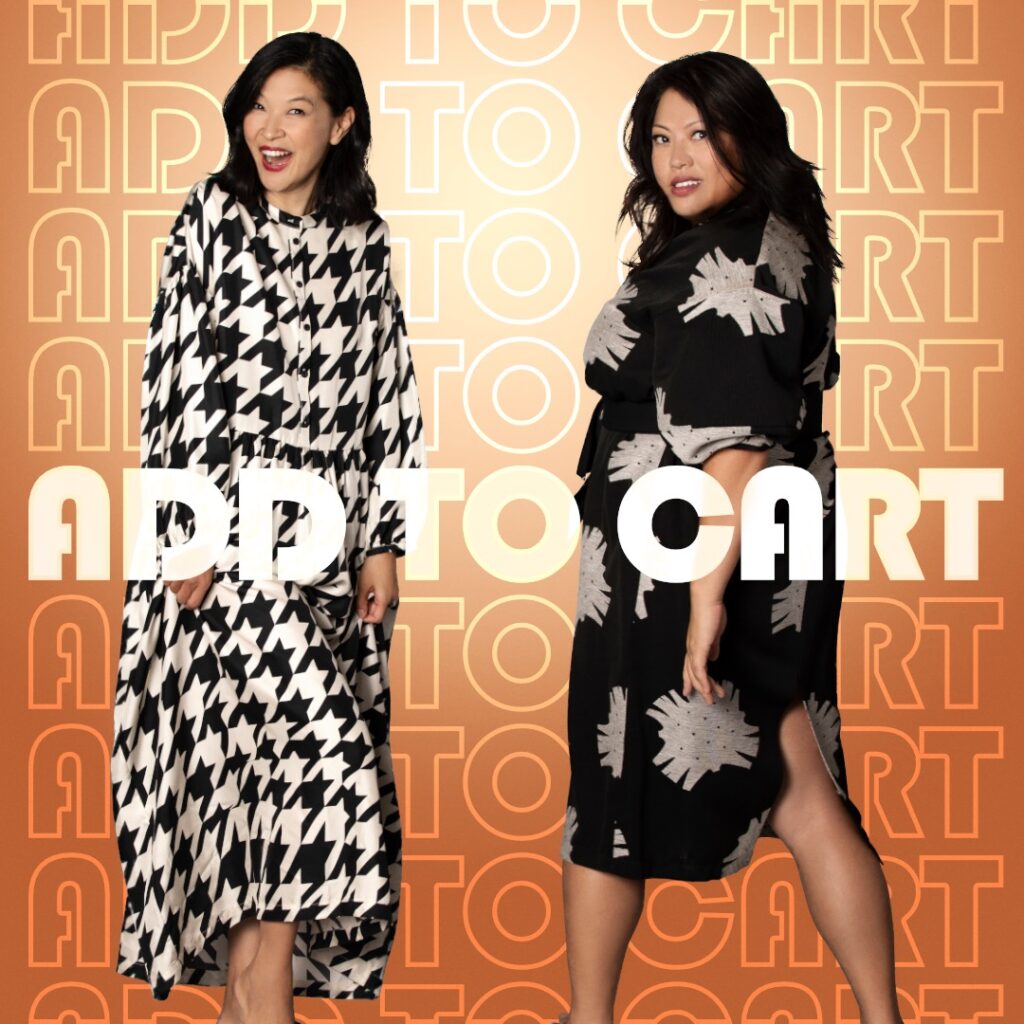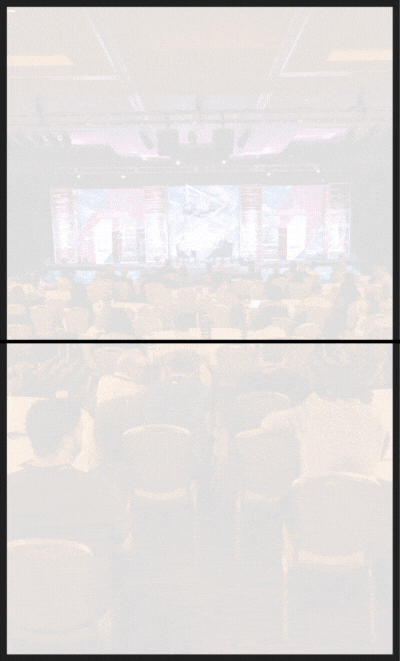
As a veteran journalist and former MTV News Correspondent, SuChin Pak has interviewed some of the world’s most interesting people — from Mariah Carey to George Lucas and beyond. SuChin now co-hosts the Lemonada Media podcast Add to Cart, where she and comedian Kulap Vilaysack have honest and revealing conversations about what they’re adding or removing from their “carts.” The concept extends beyond just material objects and dives into philosophies, trends, and anything else that says something about what we buy and buy into.
SuChin was kind enough to offer podcast wisdom on choosing a topic that’s meaningful to you, why discomfort leads to conversation treasures, and how to improve your co-hosting skills.
In a hurry? Here are the key takeaways for your own podcast:
- Consider time and brainpower commitments for your podcast—does it fit into the other demands of your life?
- Don’t self-censor while you’re recording; leave the cutting for the editing phase.
- Don’t be afraid to get uncomfortable. That’s where the interesting conversations live.
- You don’t need a script for your podcast, but a loose structure can be a huge help.
- The simple question “What do you mean by that?” will help you drill deeper into a conversation.
- Be a great follow-up to your podcast partner/co-host. The follow-up is where the juices are.
Portions of this interview have been edited for clarity and content.

Doug
Is Add to Cart your first foray into podcasting?
SuChin
Add to Cart is my first experience with podcasts in the traditional sense of we have an idea, we pitch it to a podcast network, and lo and behold a podcast is born.
I come from the world of broadcasting and as the podcast platform started to grow, a lot of companies decided to use podcasts as a way to market to different audiences and market their brand and figure out different ways to create content. My experience with this kind of branded content, it's so different than when I was at MTV and we literally had to say, “The Skittles Red Carpet.” You know what I mean? Or like, “Watch this Starburst clip.” To me, podcasting is more about doing what interests you.

I met my co-host Kulap Vilaysack through our work in activism. We’re both organizers in the Asian American community, especially in entertainment and media. We met at the Time’s Up organization. She has had a long background with podcasts. Who Charted? went on for almost a decade I think. Kulap wanted to get back into the space, and she asked me if I’d want to do a podcast.
It's so different than when I was at MTV and we literally had to say, “The Skittles Red Carpet.” To me, podcasting is more about doing what interests you.
The thing I guess we're known for is Asian American identity. And I really thought about it, and I told her, ‘I don't think I could do that.’ I don't think I could, on a weekly basis, come and talk about something that heavy. There are already so many other academics and non-academic hosts who are saying things more eloquently than I could about race and gender and class. It just felt like it was too much for me to take on, and I didn't think I was the right person to do that. So we left the idea sitting.
And then right before the pandemic, we sat down and started to think about, well, what kind of podcast do I want to do? I wanted to do a show about a topic that I was already doing on my own, so it wasn't going to be extra work. I have a full-time job. I've got two kids. I can't dive into aeronautical space engineering and become the expert in that every week. I don’t have the time to do that. So I was like, why don't we do it on shopping? I do a lot of that. I talk about it all the time with my girlfriends. I can turn that on and off very easily.
I have a full-time job. I've got two kids. I can't dive into aeronautical space engineering and become the expert in that every week.
Yes, Add to Cart is about the things we buy, but it’s also about the things we buy into. It's about what those things say about who we are. So we can talk about the ten-step K-beauty skincare routine, which then quickly goes into conversations about Asian hate crimes. Somehow the show holds all of those things. I think in a lot of ways, it is just the way two friends have any kind of conversation. It holds both heartache and humor, and it holds eyelash creams and identity politics. And I think it’s worked really well.

Doug
What sort of pre-show prep do you do? Because those topics can be very dense.
SuChin
My gut, honest first answer is I do zero prep work. But these are topics and things that I'm already fascinated by. The thing about the show is that neither Kulap nor I know what the other person is bringing until we hit record. So what we do is we have a theme, and when it's right, I don't have to do any research because it's already stuff that's organically happening in my life. So in that way, the prep work is constantly happening.
Doug
Add to Cart can get quite personal. Do you have topics that are off-limits?
SuChin
If you're not recording live to tape, which most of us aren't, we just go ahead and talk about anything and everything. And then you can cut it out and edit. So that way, I'm not self-censoring. Because when you do that, I think you start to overthink everything and then nothing comes out. So every episode I'm terrified of what I'm going to say. But I know I can ask the producers either to cut out anything I’m not comfortable with.
I need to be able to get to that uncomfortable place for all the interesting conversations to come out. I don't leave things on the table.
Just the other week, we had this conversation and this emotional wave hit me and I didn't know where it came from. I was just ugly sobbing. And in the middle of it, I told Claire, our producer, I was like, ‘Please cut out all of this crying.’ I'm not ready, you know what I mean? I'm still in the middle of processing all of this emotion. But I need to be able to get to that uncomfortable place for all the interesting conversations to come out. I mean, episode one I share that I basically change my underwear four times a day. I don't leave things on the table. I went into this being like, if I'm going to do this, then I'm just going to go all out and there are things that I'm not comfortable with but that's to my discretion.

Doug
There's something therapeutic about not having to consider limitations like you normally would in conversations. Is that something that gives you energy? Or does it drain you?
SuChin
Yeah, that's a great question. And the honest answer is I am a high-functioning introvert, so it is very draining. We're on a pretty tight production schedule where we record on normally a Wednesday, and then the episode was on Tuesday report. And I had just had this conversation with my producers, saying, you know what, I'd like to bank a few episodes. This is a new process for me, and sometimes I just need a break to come up with new material, to process everything that's happening, to look over the DMs we've gotten. There's so much happening so quickly.

What's so great about podcasting, at least in my experience, is that I'm in complete control over every aspect of it. And that includes when we record.
I think there are different ways that you can look at creative and business opportunities, especially in podcasting.
If sometimes in the future, I have to skip a week, we can come back and say ‘I'm so sorry, we didn't have an episode last week because I had a complete meltdown and I just couldn't do it.’ Or we bank an episode and it's fun and it's evergreen and it airs to give us breaks.
To answer your question, for me it’s very draining, but it can also be the thing that surprisingly gives me the most creative fuel. Talking about things isn't how I normally get creative. I'm much more about writing things down, reading, researching, quiet, quiet, quiet. So it's a different type of creative energy I’ve never really leaned into.
I think there are different ways that you can look at creative and business opportunities, especially in podcasting. One is with very strategic clear goals in mind. And the other is not knowing the potential of this and trying to figure that out. And I'm really proud of the material we're putting out. If I walked away from that, with not one single more episode or a penny from doing this, I 100% consider it an absolute success.
Doug
Do you find yourself listening to more podcasts now that you have your own?
SuChin
I'm so addicted to You’re Wrong About. It’s two journalists taking a topic, and it could be anything. And you think you know the story, but they're going to give you the real story. If you’re interested, I would start with the Anna Nicole Smith episode. But they cover everything from the OJ Simpson trial to ‘Tipper Gore versus heavy metal’ to the Stanford Prison Experiment. I think they're just very curious people that have these day jobs, and then on the side really like to go deep into topics. We're talking deep-dives-with-scuba-gear style. No light, you know, sharks. Phosphorescent amoebas. Deep. And it's their take on it.
Heavyweight is also great. And then there's this podcast that I love called Asian Not Asian. It's co-hosted by two comedians and they're just hilarious. I cry from laughing so hard, it's just so much fun.
Doug
For readers who also co-host a podcast, do you have any advice for being a better co-host?
SuChin

Co-hosting is a balance and a dance. For example, if your co-host is talking about something and she's got a real hard stance on it, then it's my turn to be loose with it. It’s about that Yin and Yang. And so you have to be able to, in that moment, figure out the missing energy in that conversation. You have to constantly think about, okay, what's the balance that's going to set up what they're saying or wrap up what they're saying in a way that really works?
Co-hosting is a balance and a dance. You have to be able to, in that moment, figure out the missing energy in that conversation.
But I think most podcasts, if they’re personality-driven, you're a heightened version of yourself. There’s a bit of performance. So it's kind of nice to have that conversation offline with your co-host of being like, ‘Hey, if I come off a little harsh, or if I question something, that's not really who I am.’ I'm open to all ideas, but there has to be a version of myself that is opposite to what's happening. Otherwise, it's not interesting. I think when you have two people saying the exact same thing, the exact same energy with the exact same tempo, it doesn't really work.
Let me give one other useful tip: I don't believe in scripting things out. But I do believe in having a very loose format. So it could be as simple as there are the four topics we’ll be talking about today. My take is going to be X. You can have whatever take you want, but just know that this is where I stand. So I think that having that loose format and then letting the conversation flow feels like the best way.
Doug
It's great to have that structure and then dress it up with the conversation. Otherwise, it’s easy to get off topic and wander in the idea field. If you've got at least a road to drive on, I think it’s a big help.
SuChin
Yes. And one final tip you just reminded me of, which is to press an answer and ask for clarifications. Say things like: “Wait, what? What do you mean by that?” Ask for an explanation, unpack things. When someone says something, there’s so much more beneath the surface — what they say is just the tip of the iceberg. The best stuff comes when someone says something very innocuous, and you're like, what do you mean you don't like the color blue? The follow-up is where the juices are. So be a great follow-up for your podcast partner.




Join the Movement